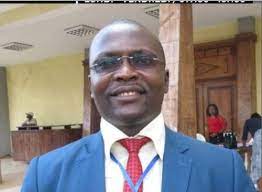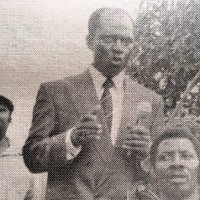 An investor pool led among others by the NSIF and the SNH expressed in November 2022 its interest in acquiring the shares of the British Actis fund in Energy of Cameroon (ENEO). If the operation is concluded successfully, then this will consecrate the renationalization of electricity distribution in Cameroon. From a prudent point , this sounds like a relief for consumers who are wondering what the added value of the privatization of the defunct SONEL would have been. But in essence, this rather raises a lot of questions with regard to the political and economic realities of the country. Are the change in the ownership structure and / or nationalization the solution to the problems of energy production and distribution in Cameroon? Is the state a good partner and a good customer?
An investor pool led among others by the NSIF and the SNH expressed in November 2022 its interest in acquiring the shares of the British Actis fund in Energy of Cameroon (ENEO). If the operation is concluded successfully, then this will consecrate the renationalization of electricity distribution in Cameroon. From a prudent point , this sounds like a relief for consumers who are wondering what the added value of the privatization of the defunct SONEL would have been. But in essence, this rather raises a lot of questions with regard to the political and economic realities of the country. Are the change in the ownership structure and / or nationalization the solution to the problems of energy production and distribution in Cameroon? Is the state a good partner and a good customer?
Lack of budgetary discipline
If the nationalization (SONEL) and the privatization of electricity distribution (AES-SONEL, ENEO) do not give satisfaction to consumers, it is also and above all because the state of Cameroon is not solvent. As long as the state consumes electricity without paying, then all the economic models that we develop will be doomed to failure. The thorny question to be answered in Cameroon is how to force the state to pay its bills. In 2023, how to make the recovery of accumulated and unpaid invoices? The overall debt owed to ENEO by the State amounted to more than 186 billion FCFA (after 163.05 billion FCFA in May 2021). Over time, the state sinks into administrative vandalism. He pays his bills less and less, which is very detrimental for the company. In December 2021, ENEO had to raise 118 billion FCFA on the financial market to partially clear its own debt and pay its suppliers (such as TRADEX, SONARA, SONATREL, EDC). That is to say that we are in a system where the state does not pay its bills but requires ENEO to pay its own (nearly 60 billion FCFA in 2021).
The truth is that only the State of Cameroon can resume ENEO. The state is the biggest debtor of this company while it owns 44% of the shares. No one can venture out. We recall that the Angolan company Aenergy had no longer followed up on its interest expressed in 2019. The takeover of ENEO by the state is therefore not good news from an economic point of view. The company is not viable and the government's budgetary indiscipline is not likely to reassure. I mean that no company (CNPS in this case) can keep its contractual obligations (massive investments) if one of the largest customers (State) does not pay its bills. The management that would have reassured is the one that would be ready to cut the power to the Presidency or in the ministries in case of non-payment of bills. We all know that the CNPS and the SNH will never do it. I am afraid that this operation to take over ENEO will only be a financial pitfall for a company like the CNPS which must not fail in its mission to cover social security in Cameroon, especially that of pensioners and other vulnerable or injured workers.
Lack of performance goals
The management of public companies in Cameroon is rather patrimonial. It does not meet the requirements of the performance objectives contained in the new IMF requirements for the year 2023. The management of a publicly funded company like SNH is opaque and the longevity of the general management has strictly nothing to do with the results (GAR). This situation being generalized with, for example, the perpetuation at the post of PCA in total violation of the relevant legal provisions, we can doubt the exceptional nature of the structure that will be set up to manage ENEO after the takeover by the State. We all know that the renationalization of water distribution (CAMWATER) has not solved the shortage problem. The former general director of CAMWATER (2022) left amid rebellion in the face of a non-performing state. A state that constantly sacrifices scapegoats to cover up its real problems of budget vandalism.
The State of Cameroon sets untenable contractual obligations to ENEO. For example, the company must supply fuel oil to the thermal power plants of CAMWATER which accumulated 19.713 billion FCFA of unpaid in May 2021. Apart from CAMWATER, here is the list of the largest gravediggers of ENEO in 2021: companies and public institutions (44.524 billion), ALUCAM (17.315 billion), SONARA (8.5 billion), TRADEX (7.3 billion), state universities and other public hospitals (4 billion), CAMTEL (1.9 billion), CRTV (1.4 billion), etc.
As we can see, it is the state that is the problem. The sustainable solution is to change governance in Cameroon. As it is, the change of ownership and nationalization will not bring any relief long awaited by the populations.
The citizen will have to play his role. The role of censor. It will be necessary to sanction this bad governance which consecrates our misery over time. Cameroonians have the right to better. And that's our commitment.
I'm committed. I'm doing my part. What about you?
Louis-Marie Kakdeu
Member of the SDF Shadow Cabinet
Economy, Finance and Trade.




